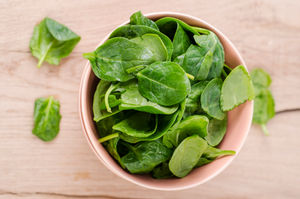The Probiotics
- özlem kepenekçi
- 23 Şub 2021
- 3 dakikada okunur
Güncelleme tarihi: 24 Şub 2021
Hi everyone!
We talked about prebiotics in previous article, now its time for probiotics!
These little guys are important for us than you can imagine.
They live in our body, in other terms, they are our tenants in our body. They pay us by destroying bad guys (harmful microorganisms) and boosting our immune system.There are many studies showing that they also manage our emotions.
Yes I know it sounds a little strange.
Okey, start with basic information.
Probiotics, by definition, are living microbial food ingredients which have a beneficial effect on human health.(1)
The most common are bacteria that belong to groups called Lactobacillus and Bifidobacterium. Other bacteria may also be used as probiotics, and so may yeasts such as Saccharomyces boulardii.(2)
We couldn't define every bacteria or yeast as probiotics, they should have some properties as below;
Resistance to pancreatic enzymes, acid and bile
Adhesion to the intestinal mucosa
Human origin
Documented health effects
Safe
Good technological properties (3)
They mostly live in our intestine but also found in the mouth, vagina, urethra, skin, and lungs.(1)
There is a list of some disease which probiotics reduce the effects or prevent them;
Immune problems
Allergic disease
Colorectal cancer
Depression
Obesity
Acute gastro-enteritis (3)
Let's come to the real question. Where can we find these lovely microorganisms and how to become hospitable hosts?
Fermented foods like yoghurt, boza, cheese, sauerkraut, kefir, tempeh, kimchi are some good examples and supplements, baby foods are other sources of probiotics. Non-dairy probiotics are a new growing market also (4)

Do you know, If we want to label a food as a probiotic food, it should contain at least 10.000.000 living probiotic microorganism at 1 ml 🥳 Yeah I know it is a gigantic number, but it is not a big issue in the microorganism world 😉
So how much probiotic foods we should consume and what kind of microorganism are good for us?
The answer of this question changes due to your body and geography. We born with some of them and take the others with probiotic foods when we are growing. Therefore traditional probiotic foods have a huge impact on our guts.
Kirkpatrick says people who eat a single serving a day tend to have healthier gut bacteria. Zanini, a spokeswoman for the American Academy of Nutrition and Dietetics, often recommends two to three servings of fermented foods per day.
“But you need to listen to your body,” she says. “If you are having discomfort, that would be a sign to tone it down.” (5)
Listening to our body, is also an answer to be a good household for probiotics.
We should consume prebiotics (remember the previous article), but we should be careful when eating them.If you face with strong gas problems or diarrhea, you should take advice from your doctor and maybe change your diet. By the way, I remember a remarkable search about gut microbiota change and its effects on obese people. Maybe we can discuss this search at next article, why not 😎
See you in my next article :)
2500 years ago Hippocrates said;
Our food should be our medicine and our medicine should be our food.
Value Hippocrates words and take care of yourselves <3
References
1.https://my.clevelandclinic.org/health/articles/14598-probiotics
3.Ouwehand A.C., Salminen S., Isolauri E. (2002) Probiotics: an overview of beneficial effects. In: Siezen R.J., Kok J., Abee T., Schasfsma G. (eds) Lactic Acid Bacteria: Genetics, Metabolism and Applications. Springer, Dordrecht. https://doi.org/10.1007/978-94-017-2029-8_18
4.Granato D., Branco F.,Nazzaro f.,Cruz A., and FariaJ. (2010) Functional Foods and Nondairy Probiotic Food Development: Trends, Concepts, and Products
5.https://www.webmd.com/food-recipes/news/20170213/could-fermented-foods-boost-your-health







Yorumlar